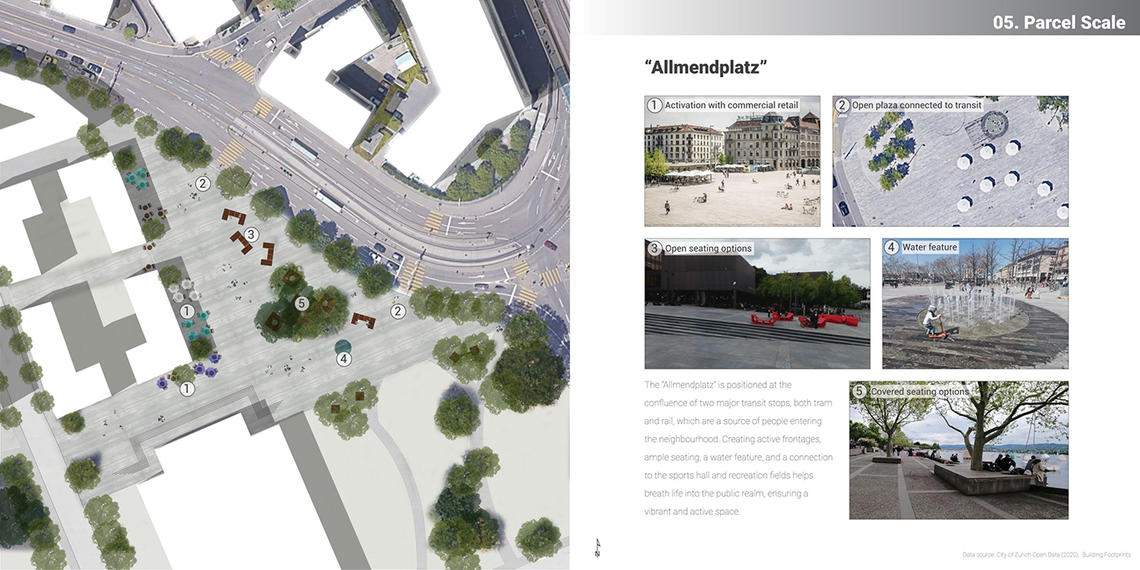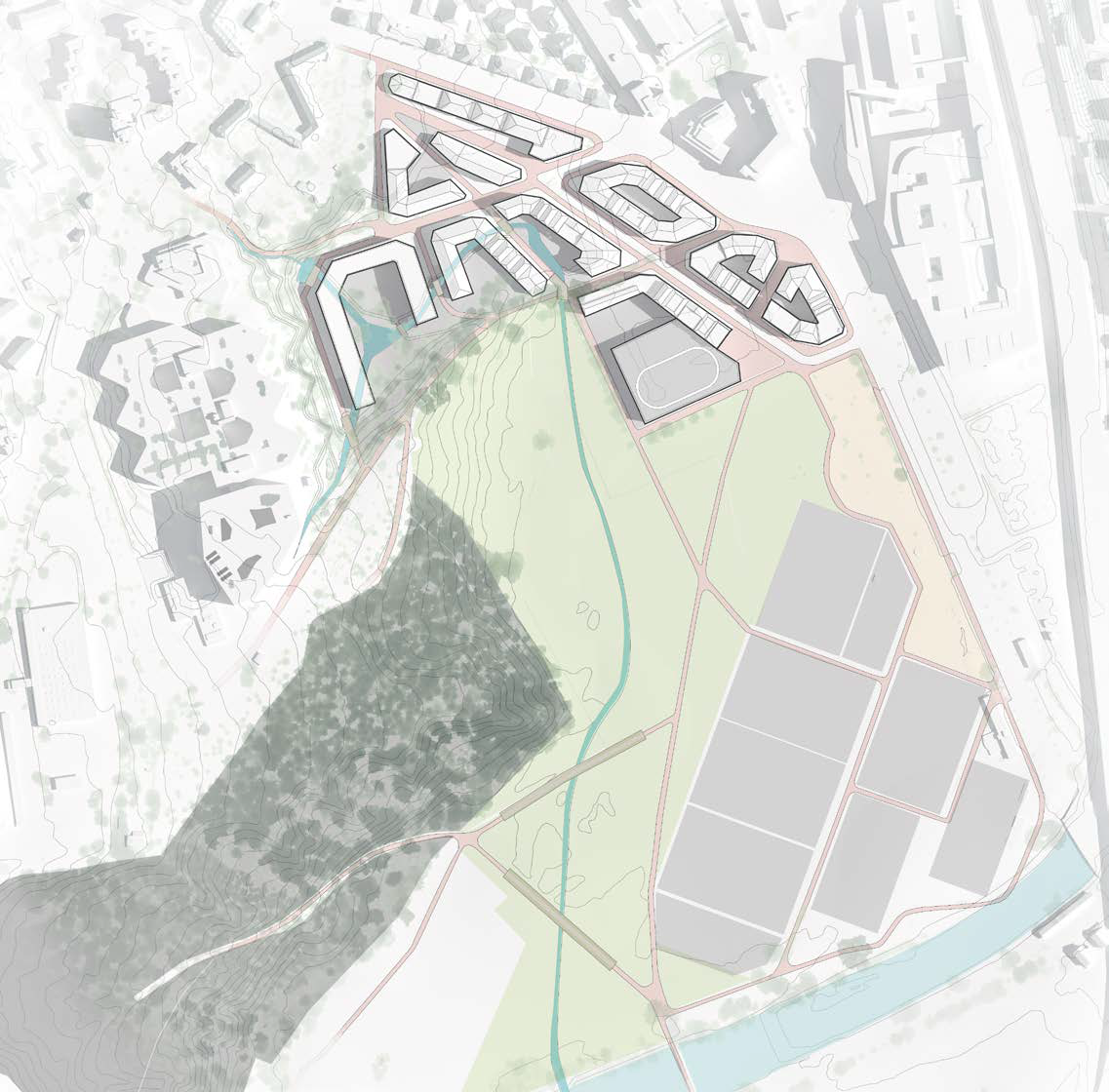
Aug. 20, 2021
Zurich via Zoom: Planning professor turns study abroad experience into a virtual studio
When the pandemic reared its head in Canada last March, most of us had to make immediate and significant adjustments to the way we worked. Overnight we found ourselves Zooming from [hopefully] quiet corners in our homes, googling how to make a green screen, muting and unmuting ourselves perpetually to avoid giving colleagues an earful of barking dogs, sirens, and sibling rivalry.
But it’s a safe bet to venture that during the last fifteen months of online everything most of us did not create a study abroad experience via Zoom.
With the exception of School of Architecture, Planning and Landscape professor Francisco Alaniz Uribe. In the Spring of 2019, he led a student field course for planning, landscape architecture, and architecture students to Zurich, Switzerland. The trip was cancelled in 2020 due to the pandemic and with uncertainty around travel in 2021, Alaniz Uribe opted to shift gears.
Inspired by the possibilities embedded in remote learning and confident in his knowledge of Zurich, he applied for the University of Calgary International Group Study Programs Virtual Conversion Grant to create a ‘Virtual Zurich’ Studio.

This graphic was part of Carter McHugh's (MArch’22) project.
This was not a quick making lemonade out of lemons pivot. Alaniz Uribe spent almost twelve months putting all the details in place. He enlisted one of his research assistants at the Urban Lab, Karly Do, who’d previously been on the Zurich trip and hired two program assistants (PA) from ETH Zurich. He shipped recording equipment to the PAs and they put together seven virtual walking tours using his instructions about routes and vantage points. Alaniz Uribe shared their video files with students via Zoom, while narrating about specifics of each place to provide a more comprehensive experience.
No detail was spared on these virtual tours. The PAs filmed a tram journey across the city, capturing Zurich’s sounds and feel on video. They did a walking tour of waterfronts and hopped in a boat at Alaniz Uribe’s request to give the students a different perspective of the same spaces.
Along with the PAs and virtual tours, he secured nearly a dozen Swiss guest speakers who provided expertise on a wide range of topics from housing to urban design and public safety. Two Swiss reviewers, Manuel Sudau and Dr. Sibylle Wälty from ETH Zurich, delivered lectures and provided feedback to the students’ interim and final project presentations.

Megan Horachek (MPlan’22) looked at the Allmendplatz as part of her project. It is at the confluence of the rail and tram stops.
When Alaniz Uribe takes students to Zurich, he asks them to sit down in a plaza and observe a map of what people do and how they move around in the space. Students repeat the process three times a day, for five days to become familiar with the site.
To simulate the exercise for the Calgary-based students, he asked the PAs to record seven specific sites at three different times during the day. He gave students access to the digital files and asked them to map one of the sites by hand to understand how people use the space. “Hand drawings provide a different learning experience,” he reasons. “And, I wanted to get them off the computer.” In addition to the recordings, Daniel Sauter, a mobility research consultant based in Zurich, provided invaluable input on the use of these public spaces.
None of this would have been possible without his prior knowledge of Zurich or the sheer number of hours Alaniz Uribe poured into creating the experience.

Zoe Crandall (MLA’23) presented this as part of her work in the virtual studio.
He turned the restrictions around travel and constraints of remote learning into an opportunity to innovate and provide access to students who otherwise would not be able to participate in a Study Abroad. Carter McHugh (MArch’22) had signed up for the Zurich trip and pivoted to the virtual course when travel was no longer an option. He found the experience incredibly valuable. “Almost any course could benefit from lectures by international experts, virtual tours of case study spaces, etc. Online experiences can never replace real travel but they are much more accessible and can certainly enrich and expand a student's education with new cultural perspectives and global considerations.”
Fellow student Megan Horachek (MPlan’22) agrees. “Francisco did an incredible job transitioning to the online format, while also being sensitive to the fact that we had just spent eight months on Zoom," she says. "I feel like we got as close to the real experience as we possibly could have in this virtual format.”
The experience was very meaningful for Alaniz Uribe. “I did not know how amazing my Swiss partners were going to be – agreeing to do all of these things online. We start at 9 a.m. which is already 5 p.m. for them, so it’s not easily doable. I wasn’t sure what the response would be, but they were so kind, so generous.”
Lucky for them, he knows just the boutique in Zurich to place an online order for thank you chocolates.



